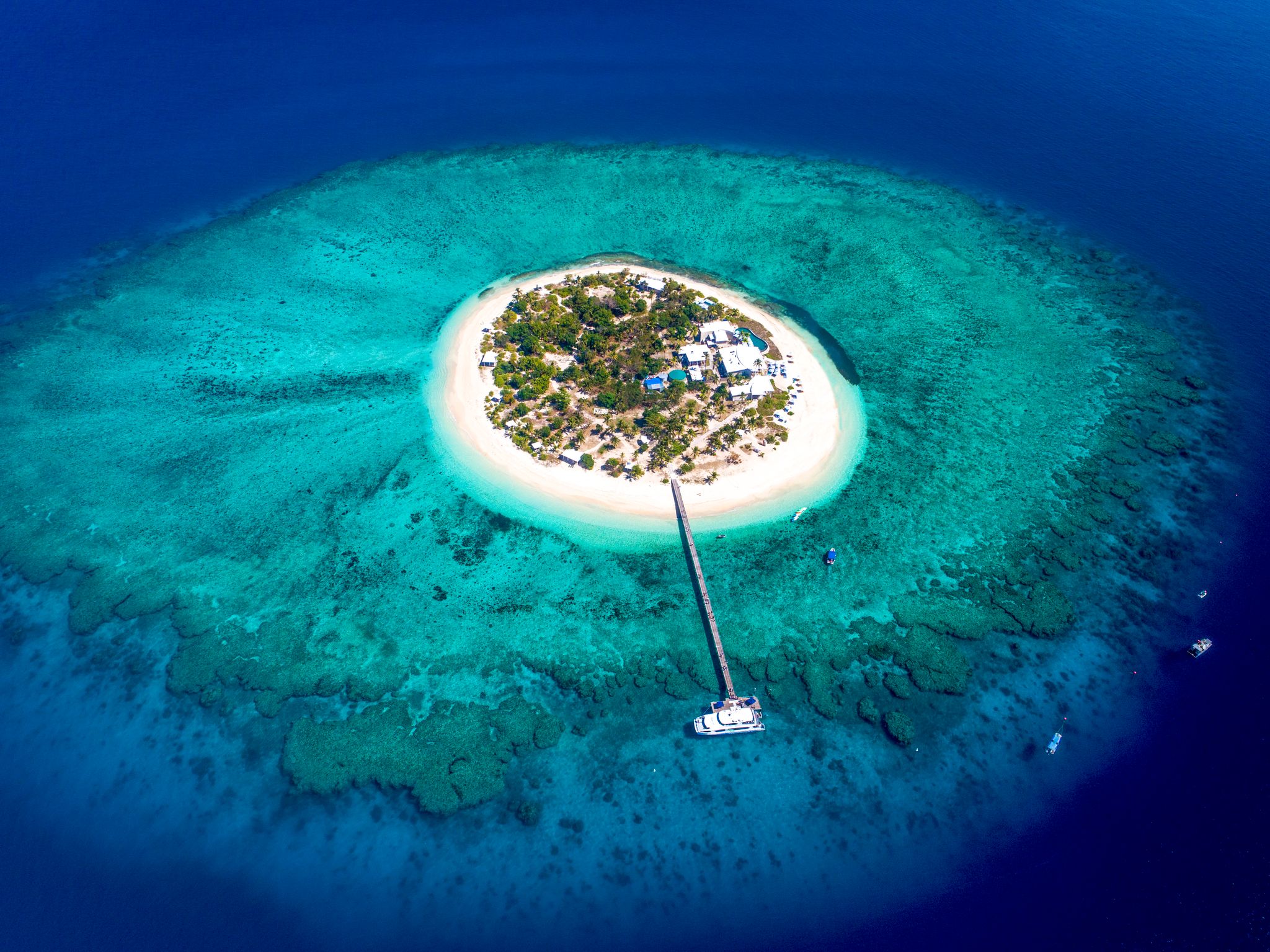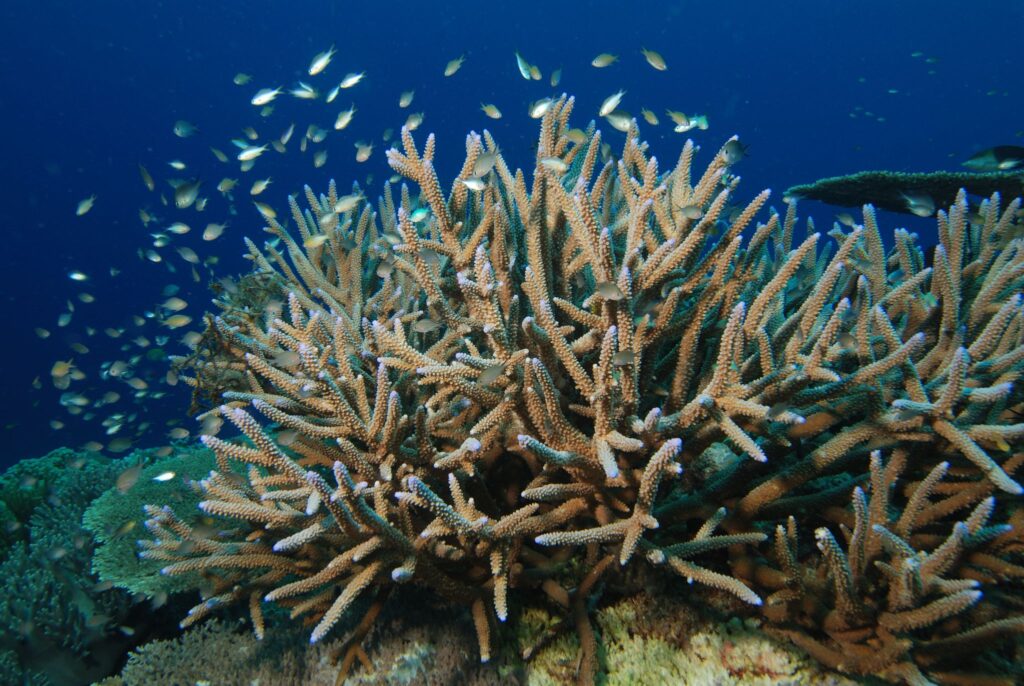Play
Malamala’s Underwater Garden
Fiji’s Malamala Beach Club has undertaken a coral restoration project to ensure its surrounding reef continues to thrive.
July 16, 2020
Pacific Island Living
July 16, 2020Malamala Beach Club is located on a private island which is a 25-minute boat trip from Fiji’s Port Denarau.
Having purchased the island three years ago, the owners found the state of the coral reef to be dire. It had suffered severe damage due to repetitive cyclones but mostly Cyclone Winston which decimated a large amount of Fiji. Malamala Beach Club with assistance from South Sea Cruises and the Barefoot Collection recently invested in a coral restoration project.

In December 2019 two large containers of coral branches harvested from the reefs around Drawaqa Island in the Yasawas were transported to Malamala for the first step in a long term coral restoration project. The conservation team involved six members of Reef Safari staff based at Barefoot Manta Resort, and once they arrived at Malamala the team started planting these branches onto the reef around the jetty.
Bring on the staghorns
The type of coral that was planted (just over 250 branches) belonged to five species in the genus Acropora, often commonly referred to as staghorn coral.
This type of coral is the most sensitive to temperature stress, storm damage and predation from coralivorous predators. Thankfully these same species also take really well to transplantation.
It has taken the branches several months to cement themselves naturally to the bare rock of the reef where they have been planted, from now it will take them several years to grow into healthy colonies that can help the reef ecosystem by providing homes and shelter for fish and other reef species.

The day after planting, the same Reef Safari staff conducted a Crown of Thorns Starfish (COTS) survey. This species is unlike most other reef starfish, which are considered good for the ecosystem; instead it eats coral and leaves behind a dead skeleton that provides little benefit for anything else.
On the survey, the team removed 16 starfish. The future of this project will be to monitor the planted branches and potentially transport more branches down from Drawaqa again, as well as constantly checking for COTS outbreaks.

The beach club also has a number of island-based initiatives to reduce their environmental impact such as a glass crushing machine, (they crushed 20,000 bottles in four months). This ‘sand’ is then used to create concrete for renovations.
In addition the water from the natural spring on the island is filtered so guests don’t have to rely on plastic water bottles.
Visitors can book and purchase a day pass at: https://malamalabeachclub.com
© 2024 Pacific Island Living Magazine all Rights Reserved
Website by Power Marketing